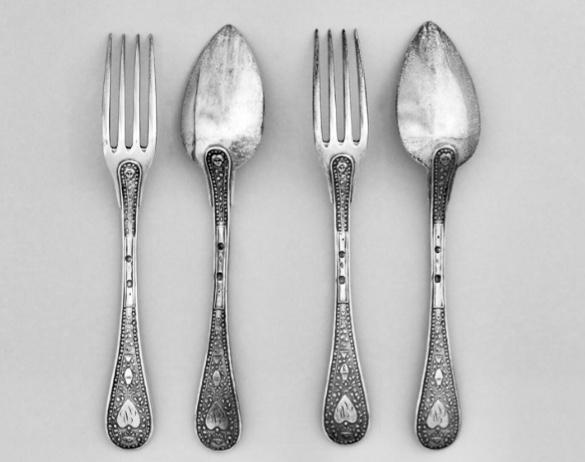Quote
"Each person received something in his plate which he was supposed to cut with the knife that was before him, and then to bring it to his mouth with the fork – not the hand. People here do not eat with their hands and they never eat with someone else’s knife or fork or drink from someone else’s glass. They claim that this is cleaner and healthier."
Links to the Encyclopedia:
We dropped anchor at the quay of Marseilles, which is one of the ports of France. We disembarked from the ship on which we had voyaged into small launches, and arrived at a house outside the city. This was used for quarantine (karantīna) as, following their custom, anyone coming from foreign lands must go through quarantine before being allowed to enter the city. […]
The lazaret where we stayed during the quarantine was very spacious and solidly built, and contained large buildings and gardens. It was there that we became aware of the high-quality construction of this country’s buildings, which are filled with gardens, fountains, etc. The first day, almost without out being aware of it, we experienced things that were for the most part strange. They brought a number of French servants to us although we did not know their language. We also received about 100 chairs to sit on, since in this country it is considered strange for people to sit on a kind of rug spread out on the floor – indeed, the very fact of sitting on the floor amazes them. Then, they laid the table for breakfast for which they brought high round tables, on which they placed white earthenware plates. In front of every plate they put a glass goblet, a knife, fork and spoon, and on each table there were about two bottles filled with water, a small container with salt and another with pepper. Around the table they then arranged chairs, one for each person. Afterwards, they brought the food in. On each table they placed one or two large dishes from which one of the people at the table ladled and distributed the food to all the others. Each person received something in his plate which he was supposed to cut with the knife that was before him, and then to bring it to his mouth with the fork – not the hand. People here do not eat with their hands and they never eat with someone else’s knife or fork or drink from someone else’s glass. They claim that this is cleaner and healthier. From what one can see among the Franks, they never eat from copper plates or receptacles – not even if they have been tinplated, as these are used for cooking only. However, they do always use enamel plates.
With them, meals consist of several set stages, each of which may be multiple. The meal starts with soup, which is followed by meat, various types of dishes such as vegetables and pastries, followed by salad (salata). Sometimes, the enamel plates are in the same colour as the food served, salad dishes, for instance, being painted green, the colour of the salad. They end their meal with fruit, followed by an alcoholic beverage, although they drink little of it. Then it is time for tea or coffee. The above holds true for both the rich and the poor, each in accordance with his means. Every time somebody has eaten food from his plate, it is changed, whereupon another, unused plate is brought in for the next course.
Sources
Text : Rifa‘a Rafi‘ Al-Tahtawi, An Imam in Paris. Account of a Stay in France by an Egyptian Cleric (1826-1831), trans. and Introduction Daniel L. Newman (London: Saqi Books, 2011) pp. 150-154.
